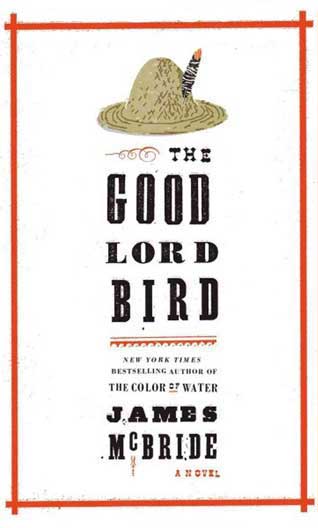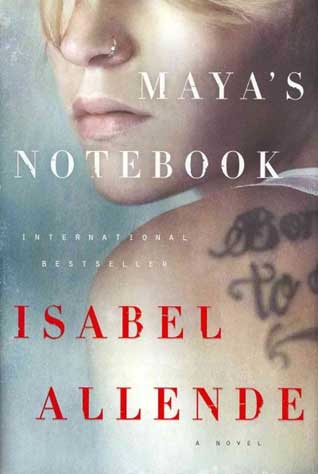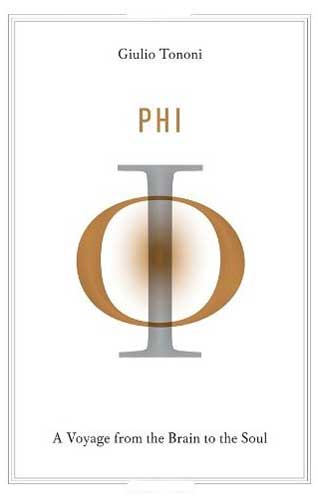Books
Ajit Singh - Top-10 Picks for the Best Books of 2013:
Part I
AJIT SINGH
“Panta rhei,” said Heraclitus. Change is the only constant!
In 2008, when I left Siemens to move to the Silicon Valley, I used the phrase “sea change” to describe what was happening. Those were changes around me, in my environment. I responded to the changes, but the core within me remained quite still.
Five years later, I have experienced the opposite. 2013 has been a year where my external environment, my ecosystem, was very stable. The changes I experienced were within me.
There are two changes that I find most observable.
Over the years, my self-image has been one of an impatient person – with tasks as well as with people. This is one aspect of my personality where I have experienced most change. In 2013, I have found myself to be immutably patient, despite the fact that my surroundings – both tasks and people – tested me to the fullest.
Second, I am a seeker – of adventure, but alongside stability. On the balance, however, it was adventure that I sought more in the past. I believe that I am changing in this dimension too. My inner gravitational pull is towards stability.
Professionally, this was a year where I had to act more (often) like a CEO and less like a VC. As such, I had to rely far more on patterns of the past than on first principles. While drawing upon patterns has the comfort of familiarity, it sure is an antidote to creativity.
Now that is an uncomfortable terrain for me. This is something I need to reverse. Whether the reversal will require that I change something within me or in my environment, time will tell. I do realize one thing: this is a change that I will have to cause, with conscious action.
Some of you have heard me tell the following story. My father used to correct errors – of spellings, grammar, and occasionally of style – in the letters I used to write to him (in long hand, blue ink on paper, fountain pen and all). In one of my letters, written in 1983, he crossed out the word “from” in a sentence that read, “… one of my earliest memories of learning from you” and replaced it with the word “with”. The teacher learns too, he commented.
If it weren’t for the students that I have surrounded myself with, I’d be learning very little. All the new authors and themes that I have explored this year came from their recommendations.
This Top-10 review is Serial Number 20. The categories for this year’s list are a slight variation from the past: Fiction, Philosophy, Management/Economics, History/Politics, Science, and Mathematics, plus a guest appearance form my daughter Gunita.
As in all the previous years, the criterion for including a book in my Top-10 list is very personal: Is this a book that I am likely to read again?
FICTION
1 James McBride, The Good Lord Bird, Riverhead Books, 2013
James McBride’s The Color of Water was the very first book I had reviewed when I began my Top-10 list in 1993. That was a personal memoir. While the poignancy and the circumstances of a child born of a Jewish mother and a black father growing up in the Bronx were impactful in their own right, it was the broad-spectrum of characters and their human failings and contradictions that made the book delectable.
Living up to the expectations that McBride set in his first work of writing twenty years ago is a tall order. The Good Lord Bird delivered, and then some. It also won the 2013 National Award for fiction.
Anyone who has read and enjoyed the account of abolitionist John Brown’s raid on Harpers Ferry would love to read McBride’s fictional account of events leading up to it. Anyone who has not would want to dive into that phase of American History after reading The Good Lord Bird.
The book begins in 1857 against the backdrop of anti-slavery turmoil in the Kansas Territories. The protagonist, Henry Shackleford, is a young slave. John Brown arrives at the scene, and as a result of a scuffle between him and Henry’s master, leaves town with Henry. The twist: Brown believes that Henry is a girl, and nicknames “her” Little Onion.
As the story unfolds, Little Onion finds himself an unwilling ally in Brown's anti-slavery crusade, leading all the way up the scene of the historic raid on Harpers Ferry in 1859 – a key trigger point for the Civil War.
The Good Lord Bird is a skillful amalgamation of facts and imagination, of history and mystery. And it shows McBride’s mastery of prose and idiom.
“He was like everybody in war. He believed God was on his side. Everybody got God on their side in a war. Problem is, God ain’t tellin’ nobody who He’s for.”
When I first read Mark Twain’s Huckleberry Finn in my teens, it was a very difficult feat. It was a required reading, so I managed using the MBD “kunji” - the Indian equivalent of Cliffs Notes.
Ten years later, I understood what it meant to develop a character as unlikeable and as interesting simultaneously, when I watched Mickey Rooney play Huck in a (1939) film rendition of the novel.
The Good Lord Bird is written in the same spirit and rhythm. A must read!
American Civil War is a theme that receives a very cursory treatment in schools and history texts outside the US. If you did not grow up in the US and missed that entire chapter in the world history, try Midnight Rising: John Brown and the Raid That Sparked the Civil War by Tony Horwitz – my own personal favorite on the topic.
2 Pascal Mercier, Perlmann’s Silence, Grove Press, 2005
This book came as a surprise gift from a friend many years ago (as did the author’s earlier book, Night Train to Lisbon). I read the book just a few months ago after hearing Isabel Allende’s comment, “A treat for the mind. One of the best books I have read in a long time.”
The protagonist of the story, Philip Perlmann, is a linguist. Grief stricken over his wife’s death, he finds himself at complete loss of words and confidence in his ability as an academic. In the midst of this inner vacuum, he is invited to deliver a keynote at an international conference. Knowing that he will have nothing of substance to present, he takes a shortcut by resorting to plagiarizing the work of a brilliant Russian colleague, Vassily Leskov, on how memory is informed by language.
The plot takes an unexpected turn when Leskov decides to show up at the conference. As the story evolves, we find Perlmann constantly trying to balance guilt with rationalization, juxtaposed with a poignant narrative of his loss of self-confidence and self-image.
Quoting Alberto Manguel of The Guardian, “… Perlmann feels that it isn't his intellectual ability that is seeping from him, but the very notion of who he is: his identity behind the academic identity … it is the breaking point that allows the troubled scholar a deep, rich, complex search for the meaning of self.”
The theme of the interplay between one’s identity and one’s work has been explored extensively in Sociology, Psychology, and of course, fiction. If you want an academic discourse on the subject, Erik Erikson is my author of choice. Start with his 1968 classic, Identity: Youth and Crisis. For a lighter treatment, try Jack Nicholson’s 2002 film, About Schmidt. Both are delectable.
3 Isabel Allende, Maya’s Notebook, Harper Collins, 2013
I often evade the question when I am asked who my favorite author is. It is easier for me to name, say, five most favorite authors of fiction, or my (two) favorite contemporary Latina writers.
That said, if I was forced to name my ONE author of choice, it will have to be Isabel Allende. I have read every single one of her books, and have reviewed most of them on my Top-10 lists in the past.
I had heard about Maya’s Notebook during a get together with Isabel Allende in Nov 2012, organized by (my other favorite Latina author) Carolina de Robertis. However, the English translation was not to be released until 2013. This book was my daughter, Pavita’s, gift to me.
Here is the protagonist Maya Vidal’s introduction of herself, on Page 2.
“My name is Maya Vidal. … I am nineteen years old, female, single – due to lack of opportunities rather than by choice, I am currently without a boyfriend. Born in Berkeley, California, I’m a US citizen, and temporarily taking refuge on an island at the bottom of the world. They named me Maya because my Nini has a soft spot for India and my parents hadn’t come up with any other name, even though they had nine months to think of it. In Hindi, maya means ‘charm, illusion, dream’: nothing at all to suit my personality. Attila would suite me better …”
As the Chicago Tribune reviewer John Barron notes, “What sets Maya's Notebook apart from the usual teen-in-trouble fare is the soaring redemption Maya finds in Chile. The village's peaceful pace is a tonic to both Maya and the reader. Sheltered from the havoc, she is introduced to a world of simplicity and everyday magic. It's a place where the food comes from the earth and the sea, where all property is ultimately communal, where sea lions can become friends, where drugstore medicines are used only when all other remedies fail, and where the dead sometimes make appearances.”
Allende is a master at teasing out oddities and contradictions through dialog, rarely relying upon narrative. She does it adeptly in Maya’s Notebook, not only in juxtaposing facets of Maya’s complicated personality, but also of the culture(s) that surround her.
There is something else that made the book really interesting for me. Many of the scenes could have been straight out of Breaking Bad.
PHILOSOPHY
4 Giulio Tononi, Phi: The Voyage from the Brain to the Soul, Pantheon Books, 2012.
The book is on consciousness, a theme I have explored amply in my Top-10 in the past. My favorite authors on this topic are Oliver Sacks, V.S. Ramachandran, Gerald Edelman, and Antonio Damasio.
Here’s what Oliver Sacks has to say about Phi:
“Giulio Tononi is a man of bold and original mind who has developed a fundamental new theory of consciousness. In Phi, he calls on all the resources of drama, metaphor, and the visual arts to present his scientific insights in the form of imaginary dialogues in which Galileo meets Francis Crick, Alan Turing, and other major thinkers of the twentieth century. This is an astonishing (and risky) literary device, but Tononi pulls it off triumphantly. He makes the deepest neuro-scientific insights come alive.”
The style of the book is reminiscent of John Casti’s Cambridge Quintet, covered in my Top-10 fifteen years ago in 1998, where the future of intelligence gets discussed over an imaginary dinner hosted by C.P. Snow, with guests including Erwin Schroedinger, Ludwig Wittgenstein, J.B.S. Haldane, and Alan Turing.
Phi begins with Tononi introducing Galileo as he tries to understand consciousness during a dream. In the spirit of Dante's Divine Comedy, Tononi invites Francis Crick, Alan Turing, and Charles Darwin to introduce Galileo to different aspects of consciousness.
Crick draws upon the biology of the brain to give his rendition of consciousness. Turing debates the ability of machines to produce conscious behavior with Galileo. Expectedly, Darwin delivers a naturalist perspective of how consciousness has evolved.
Galileo coins the term “Phi” to encapsulate the “integrated” view of consciousness. Phi captures a conscious organism’s ability to differentiate between states, and to integrate.
Tononi is a professor of psychiatry and he holds the David P. White Chair in Sleep Medicine at the University of Wisconsin. He is the coauthor, with Nobel laureate Gerald Edelman, of A Universe of Consciousness.
I was first introduced to his work through his article “New Hypothesis Explains Why We Sleep” in the July 2013 issue of Scientific American.
If you would like to get a general idea of Tononi’s thesis and his style, watch the video titled, “In search of Sleep Function” on YouTube at http://www.youtube.com/watch?v=HEbyITI13zg. He is brilliant. Also, one of my all-time favorites on consciousness is V.S. Ramachandran’s A Brief Tour of Human Consciousness, from my Top-10 of 2004.
If the subject of consciousness is of interest to you, this is a great book to start with.
Continued tomorrow ...
December 29, 2013
Conversation about this article
1: Saurabh Singh (Chandigarh, Punjab), December 30, 2013, 11:01 AM.
Your annual list is something I have come to eagerly look forward to at each year-end. In addition to your choices and suggestions, your reviews themselves make great reading and are delectable on their own. Thank you, Ajit ji. Wish you would write here more often ... would love to read more by you, no matter what the subject or topic!





